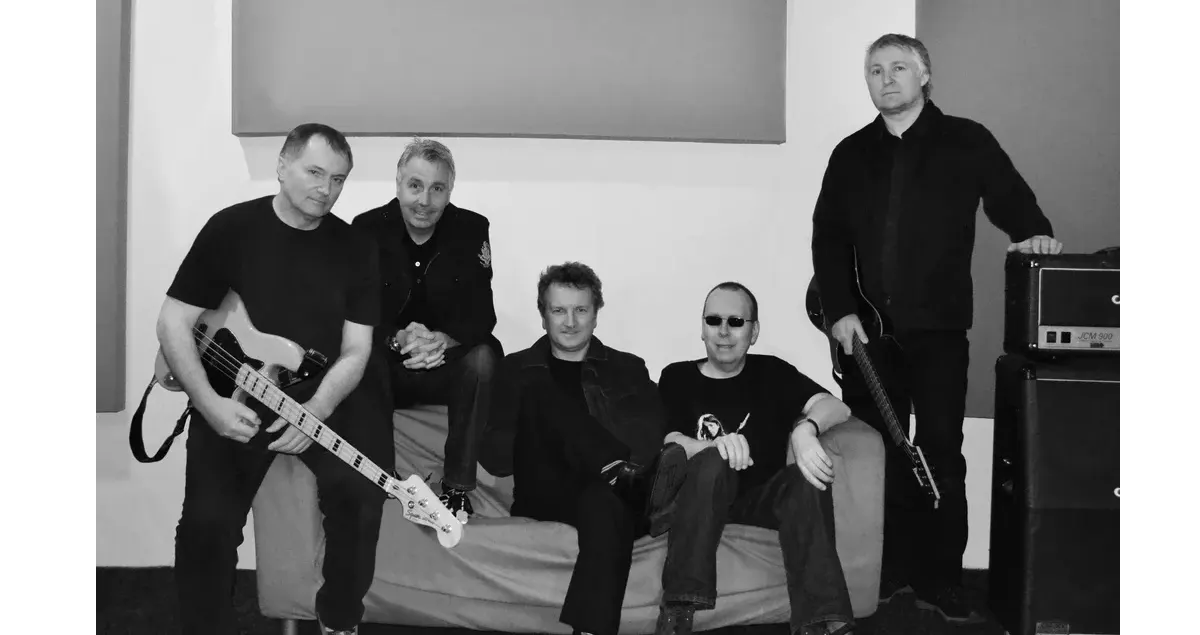Comedy of Errors: An Iconic Progressive Rock Band
Comedy of Errors is a British band formed in the late 1980s, known for making a significant impact in the progressive rock scene. Their music blends classic elements of 1970s progressive rock with a more modern sound, gaining popularity among progressive rock enthusiasts. With dramatic musical structures and melodic richness, their work remains impressive and highly regarded.
Formation and Country
Comedy of Errors was formed in Glasgow, Scotland, in the late 1980s. At the time, many bands were exploring the boundaries of progressive rock, and Comedy of Errors succeeded in preserving the genre’s classic elements while developing their own unique sound. The band’s name is derived from Shakespeare’s famous play “The Comedy of Errors,” reflecting the literary and dramatic influences in their music.
Band Members
Over the years, Comedy of Errors has seen several lineup changes, but the following musicians have been pivotal in the band’s development:
- Jim Johnston (Vocals): A founding member, Johnston is known for his powerful and emotive vocal performances, which are at the heart of the band’s musical identity.
- Chris McMahon (Guitar): As the lead guitarist, McMahon is famous for his creative solos and complex rhythms that add depth to the band’s sound.
- John P. Cavanagh (Bass): Cavanagh’s bass playing provides a solid rhythmic foundation that supports the band’s dynamic and progressive elements.
- David M. McSherry (Drums): McSherry’s drumming provides the backbone of the band’s music, with rhythmic structures ranging from calm to complex and intense.
- Stuart Leathwood (Keyboards): Leathwood adds orchestral and symphonic elements to the band’s music, contributing to the epic atmosphere.
Notable Albums and Details
Comedy of Errors has released several albums throughout their career, showcasing their musical evolution. Here are details of their key releases:
“Comedy of Errors” (1989)
Their debut album, released in 1989, introduces listeners to the band’s distinctive sound—a mix of classic progressive influences with a modern, energetic touch of the 1980s. Notable tracks include “The Jester”, which has become one of the band’s defining songs.
“Disobey” (2009)
After a long period of inactivity, Comedy of Errors made a significant comeback with the release of “Disobey” in 2009. This album marked a revival for the band, featuring a more modern sound while still staying true to their progressive roots. The album includes long, complex tracks, with “Monument” being one of the standout pieces. It is regarded by many fans as an iconic track from the album.
Musical Themes
Comedy of Errors often explores recurring themes in their music, typical of the progressive rock genre:
- Time and Solitude: Many of their songs reflect on the passage of time, the search for meaning, and the solitude that comes with it.
- Epic Narratives: The band’s music often follows a narrative structure, with grand, dramatic stories unfolding through the songs.
- Philosophical Reflections: Their lyrics are often filled with philosophical musings on human existence, freedom, and the universe.
Interesting Facts
- Literary Influences: The band’s name is a reference to Shakespeare’s play “The Comedy of Errors,” showing the literary influence in their music.
- Rarity of Concerts: Comedy of Errors is known for their impressive live performances, where they manage to bring their complex music to life on stage.
- Loyal Fanbase: The band has a dedicated following, especially in Europe, where they have had a notable influence on the progressive rock scene.
Conclusion
Comedy of Errors has established itself as a significant force in the world of progressive rock, thanks to their ability to combine classic elements of the genre with modern influences. With landmark albums and unforgettable live performances, the band remains an essential part of the progressive rock scene. Their music, imbued with philosophical and dramatic themes, continues to resonate deeply with fans of the genre around the world.






